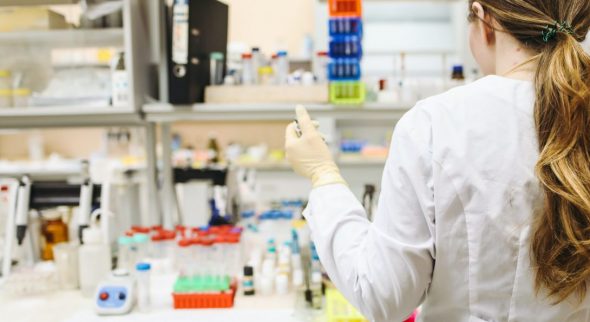UIC labs compete in fourth annual International Freezer Challenge

From January to August 2020, 218 labs from around the world representing 88 research institutions competed in the 2020 International Freezer Challenge, saving a grand total of 3.2 million kilowatt hours (kWh) per year by practicing sustainable cold storage management habits. The University of Illinois Chicago was represented by eight labs across several departments and colleges that altogether saved an average of 204 kilowatt hours per day.
Coordinated by My Green Lab and the International Institute of Sustainable Laboratories, the International Freezer Challenge encourages energy-efficient practices among lab and research professionals, specifically regarding their cold storage and Ultra Low Temperature (ULT) freezers. Labs compete to use energy both effectively and efficiently by taking actions such as defrosting freezers, cleaning out old samples, sharing freezer space with a colleague and temperature tuning.
Despite the challenges presented by the COVID-19 pandemic, UIC doubled the number of labs that participated in the challenge in 2019.
“We are thrilled with UIC’s efforts this year,” said Emily Stearney, the site coordinator of UIC’s involvement in the Freezer Challenge. “The number of newcomers we had was really encouraging as we look to next year’s challenge, during which time we hope to further expand the green labs community at UIC.”
Of the eight UIC labs that participated, the Pinna Lab in the Department of Psychiatry took first place, with their energy-saving actions saving an average of 51 kWh hours per day. The Elizaveta Benevolenskaya Lab in the Department of Biochemistry and Molecular Genetics took second place, with their lab saving an average of 45.6 kWh per day; and the Gail Prins Lab in the Department of Urology took third place, saving an average of 38 kWh per day.
Saving 3.2 million kilowatt hours per year is equivalent to reducing carbon emissions by 2,260 metric tons per year, or removing 360 passenger vehicles from the road for one year. While much of the energy savings came from heavy-hitters such as AstraZeneca, which saved a whopping 1.1 million kWh per year with eight of its sites around the world participating, Cynthia Klein-Banai, assistant vice chancellor and director of sustainability, says that universities’ contributions shouldn’t be overlooked.
“Universities have the unique opportunity to use sustainability competitions such as these as teaching tools for students to help them form sustainable habits and understand the value of sustainable research practices,” Klein-Banai said. “Forming life-long sustainability champions that will one day take their knowledge to future workplaces and educate others will reap rewards far greater than any immediate kilowatt hour savings produced from the challenge.”
Next year’s International Freezer Challenge will begin on Jan. 1, 2021. Learn more about the International Freezer Challenge winners. Fill out this form to stay up-to-date on news and sign-up information.
